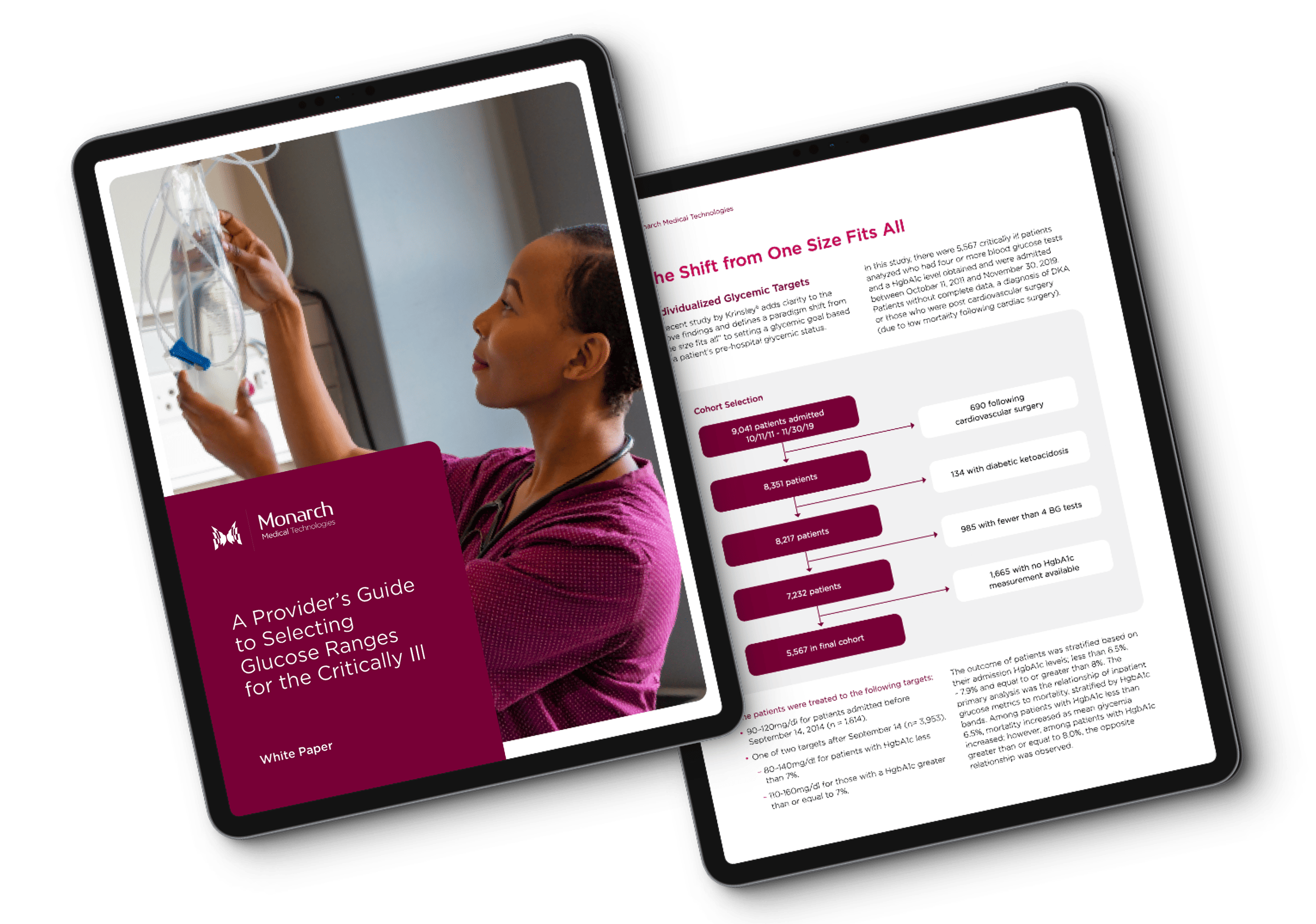Whitepapers and Research
Key findings
- A patient specific goal range, not a single goal range, is appropriate for each patient.
- Based on a patient's pre-admission HgbA1c rather than determined by the admission diagnosis or location of care.
- Post cardiac surgery vs sepsis.
- Medical ICU vs Surgical ICU.
- Severe hypoglycemia should be avoided in all patients, especially non-diabetics.
The problem
Traditionally, a “one size fits all” approach has been used, often setting uniform glycemic targets for all patients based on admission diagnosis or treatment location. However, this method overlooks individual patient differences, particularly their pre-hospital glycemic status.
The problem is further complicated by conflicting results from major studies, such as the NICE SUGAR and Van Den Berghe studies, which have led to confusion and hesitancy in adopting lower glycemic targets in hospitals.
Glycemic targets in critical care: a comparative analysis
Drawing upon comprehensive studies, including the pivotal Krinsley (2020) study, our clinical team unravel the complexities of setting individualized glycemic targets based on a patient’s pre-hospital glycemic status.
Our analysis examines the impact of such personalized care on patient outcomes, mortality rates, and hypoglycemia incidents.
The solution
The EndoTool® Glucose Management System plays a pivotal role in this personalized approach. It allows clinicians to customize treatment safely and effectively for each patient, ensuring the lowest possible rates of hypoglycemia.

Take a closer look at the EndoTool customer database for 2022, where you’ll find notably low rates of hypoglycemia across all goal ranges. Even with the most stringent goal range of 90-120mg/dl, the rates are significantly lower compared to those reported in the above studies, amounting to only 13 blood glucose values less than 40mg/dl for the entire year. It’s a noteworthy observation, indicating the effectiveness of EndoTool in maintaining safe glucose levels.
Download the white paper to see other key findings including:
- In-depth analysis of glycemic targets in critical care settings, particularly discussing the hesitancy of hospitals to use goal ranges below 140-180mg/dl.
- Clarity on the discrepancies in mortality rates observed in the NICE SUGAR and Van Den Berghe studies, suggesting the differences can be attributed to varying patient populations.
Related posts
Whitepapers and Research
Why Sliding Scale Insulin Is Failing Your Patients and Impairing Your Hospital’s CMS Readiness
Why Sliding Scale Insulin Is Failing Your Patients and Impairing Your Hospital’s CMS Readiness
eBooks and How-to Guides
The Nurse Leader’s Playbook for Transforming Inpatient Insulin Dosing
The Nurse Leader’s Playbook for Transforming Inpatient Insulin Dosing
eBooks and How-to Guides
How to Select the Right Insulin Dosing Solution
How to Select the Right Insulin Dosing Solution
Get in Touch
Ready to get started?
"*" indicates required fields
